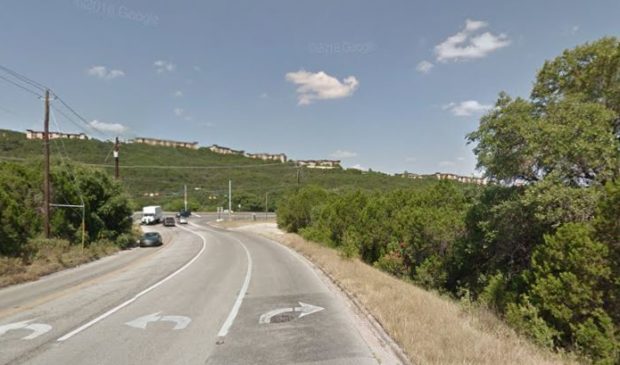Judge finds city violated open meetings law again
Wednesday, November 22, 2017 by
Jo Clifton Litigation about the Champion tract never really goes away. Originally filed in the early 1990s, the litigation simply morphs from one issue to another and one venue to another. It has cost the city of Austin an almost endless amount of trouble and untold dollars.
On Tuesday, District Judge Scott Jenkins ruled that the city violated the Texas Open Meetings Act last November by failing to disclose on the City Council agenda that Council would be voting on waivers to the Hill Country Roadway Ordinance and the Lake Austin Watershed Ordinance. That vote related to changes to a 1996 settlement agreement with the Champion sisters to resolve a lawsuit over conditions for developing the tract at 6409 City Park Road, although the wording of the item failed to describe what those changes might be.
Fearing environmental damage and disruption of their neighborhood, a number of people who live close to that tract opposed those changes, as well as a zoning change described in a separate agenda item. They formed a group called the Lake Austin Collective Inc. and hired open meetings law expert Bill Aleshire to sue.
Although the judge ruled that Council’s action related to the two ordinances is void, Aleshire and attorney Richard Suttle, who represents the developer of the tract, both said the vote on the zoning matter was still valid.
Aleshire on Tuesday criticized the “arcane wording” of the settlement item and pointed out that “If the developer is going to get those waivers, they will have to convince Council to put it back on their agenda, with proper disclosure, and have Council vote on it again.”
According to the lawsuit, which was filed in June, “The Council’s action was highly significant because it endangers the Lake Austin water supply, increases traffic dangers, sets a precedent for granting waivers and variances that were never considered by the appropriate commissions.”
A city spokesperson told the Austin Monitor on Tuesday, “While we are disappointed in the ruling, we appreciate the court’s thoughtful consideration of this matter. We are committed to following the Open Meetings Act. In light of the judge’s decision, we will assess our options, and will advise Council accordingly.”
This is the second Open Meetings Act ruling that Aleshire has gotten against the city in the last year. District Judge Stephen Yelenosky ruled that the city “committed the same violation by granting waivers to the Pilot Knob development without disclosing that on its meeting agenda,” Aleshire said in a written statement.
“In that case, the plaintiff, Brian Rodgers, filed the lawsuit but immediately offered to drop it if the Council would simply repost the item with honest disclosure of the $100 million fee waivers they were granting. The city refused to settle and lost the lawsuit,” he said, noting that his current clients, the Lake Austin Collective, sent a draft of their lawsuit to the city attorney and gave her 45 days to avoid litigation by reposting the item with the appropriate language and taking another vote.
Aleshire is also asking Judge Jenkins to award about $8,400 in attorney fees and court costs against the city.
In addition, Aleshire noted that there is “an injunction in place to prohibit the city from issuing a site plan for Champion since the site plan would depend on the voided environmental waivers.”
One of the plaintiffs, Carol Lee, noted that even though her group had filed suit, the developer tried to get approval of a site plan for the property. The site plan was submitted as if there were no lawsuit over the development conditions adopted by Council last year, and city staff started to process that application.
In addition, Lee said that when the zoning case went before the Zoning and Platting Commission, there was no mention of variances from either the Lake Austin Watershed Ordinance or the Hill Country Roadway Ordinance, even though those were major factors in the changes to the settlement agreement that has now been voided.
Neighbors filed suit in June and received notice of the site plan application mailed on Sept. 13. On Sept. 22, District Judge Gisela Triana granted a temporary injunction preventing the city from approving the site plan.
City Environmental Officer Chuck Lesniak told Council in a memo last year that the proposed changes to the settlement would result in an environmentally better project. However, Lee disagrees, pointing to a number of instances in which the previous settlement agreement appears to offer better protection.
Lee also points to that site plan as proof that the developer will not follow through on promises made at the zoning hearing. For example, Lee said that the site plan developers submitted showed “much larger buildings on steep slopes and no affordable housing,” which the developer had promised.
The Austin Monitor’s work is made possible by donations from the community. Though our reporting covers donors from time to time, we are careful to keep business and editorial efforts separate while maintaining transparency. A complete list of donors is available here, and our code of ethics is explained here.
You're a community leader
And we’re honored you look to us for serious, in-depth news. You know a strong community needs local and dedicated watchdog reporting. We’re here for you and that won’t change. Now will you take the powerful next step and support our nonprofit news organization?








